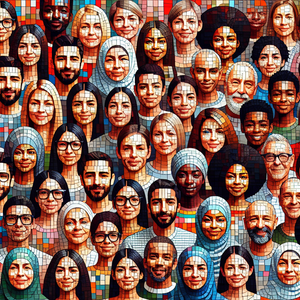From Bootlegging to Bitcoin: The Evolution of Mafia Profits

The roots of modern mafia profits can be traced back to the Prohibition era in the United States (1920-1933). With the legal sale of alcohol banned, a black market flourished, and organized crime syndicates seized the opportunity to profit from bootlegging. Figures like Al Capone and the Chicago Outfit epitomized the era, amassing wealth through the illegal production and distribution of alcohol. Bootlegging not only enriched the mafia but also laid the groundwork for their operational strategies, such as the establishment of smuggling networks and the use of violence to maintain control over their turf. Bootlegging was not merely a means of profit; it was a catalyst for the mafia’s rise to power. The immense profits generated from this illegal trade allowed these organizations to corrupt law enforcement, infiltrate legitimate businesses, and expand their influence into various sectors, setting a precedent for future mafia ventures. The vast sums of money flowing into these criminal organizations during Prohibition fundamentally altered the dynamics of organized crime, empowering them to establish a presence in politics, law enforcement, and even legitimate business.
The Shift to Diversification: Gambling and Racketeering
As the Prohibition era came to a close, the mafia began diversifying its income sources to mitigate risks associated with the changing legal landscape. Illegal gambling became a lucrative venture, with organized crime groups running underground casinos and sports betting operations. The Mafia’s involvement in gambling was not just limited to the United States; it extended globally, with connections to casinos in places like Havana before the Cuban Revolution and the burgeoning Las Vegas scene. Racketeering also emerged as a significant avenue for profit, where mafia groups extorted money from local businesses through protection rackets, ensuring a steady stream of income. This diversification strategy not only bolstered their financial strength but also solidified their presence within communities. Despite their illegal activities, some mafia organizations positioned themselves as protectors, creating a paradox where local businesses felt compelled to seek the mafia's "protection" to thrive amidst the threat of violence and competition. For example, the Gambino crime family in New York engaged in various racketeering activities that included extortion and loan sharking, creating an aura of fear that compelled businesses to comply with their demands for protection money.
Embracing Technology: Cybercrime and Cryptocurrency
In the 21st century, the mafia's adaptability has been further tested by rapid technological advancements. The rise of the internet has opened new avenues for criminal enterprise, with cybercrime becoming a prominent source of income. From hacking and identity theft to online gambling and drug sales via the dark web, the mafia has capitalized on the anonymity and reach provided by digital platforms. Cryptocurrency, particularly Bitcoin, presents a modern twist in the evolution of mafia profits. The decentralized nature of cryptocurrencies offers a layer of anonymity that traditional financial systems do not. Mafia organizations have begun to use digital currencies for transactions, money laundering, and even as a means of investment. This shift not only allows for the concealment of illicit profits but also reflects a growing trend among criminals to embrace technological innovations to evade law enforcement. For instance, the infamous Silk Road marketplace, which operated on the dark web, allowed criminals—including mafia groups—to conduct drug transactions using Bitcoin, making it increasingly difficult for authorities to trace the flow of money. The increasing sophistication of cybercrime tactics, including ransomware attacks and identity theft, illustrates how organized crime has adapted to the digital age.
The Challenges of Law Enforcement
The evolution of mafia income sources presents significant challenges for law enforcement agencies. As organized crime becomes more sophisticated, traditional methods of policing and investigation must adapt. The use of technology in criminal enterprises necessitates new approaches to surveillance, cyber investigations, and international cooperation. Moreover, the global nature of modern crime complicates efforts to dismantle these organizations. As mafias operate across borders, law enforcement agencies must collaborate with international bodies to track and disrupt their activities, which can often be a slow and complex process. The emergence of cryptocurrencies has further complicated the landscape, as they can be transferred across borders without the need for traditional banking channels, making it challenging for authorities to monitor suspicious activities. In response, law enforcement agencies are increasingly employing advanced technologies such as artificial intelligence and data analytics to track criminal activities, but the rapid pace of change in both technology and organized crime means that they are often playing catch-up.
The journey of mafia profits from bootlegging to Bitcoin is a testament to the resilience and adaptability of organized crime. By continually evolving their income sources in response to societal changes, technological advancements, and law enforcement tactics, these criminal organizations maintain their relevance and economic power. Understanding this evolution not only sheds light on the inner workings of the mafia but also highlights the ongoing challenges faced by society in combating organized crime. As we move further into the digital age, the implications of these shifts will continue to shape both the criminal landscape and the efforts to uphold law and order. The adaptability of organized crime serves as a stark reminder of the need for innovative strategies in law enforcement to effectively counteract these increasingly sophisticated threats.
Cybersecurity Analyst
CrowdStrike, FireEye
Core Responsibilities
Monitor and analyze security incidents, identifying potential threats to organizational assets.
Design and implement security measures to protect sensitive information from cyberattacks.
Conduct regular vulnerability assessments and penetration testing to evaluate system security.
Required Skills
Strong understanding of network protocols, firewalls, and intrusion detection systems.
Experience with security tools such as SIEM (Security Information and Event Management) and anti-virus software.
Knowledge of compliance regulations (e.g., GDPR, PCI-DSS).
Digital Forensics Investigator
Law enforcement agencies, private investigation firms, corporate security departments
Core Responsibilities
Collect, preserve, and analyze digital evidence from computers, mobile devices, and networks.
Prepare detailed reports on findings and present evidence in legal proceedings.
Collaborate with law enforcement agencies to investigate cybercrimes and breaches.
Required Skills
Proficiency in forensic tools such as EnCase, FTK, and X1 Social Discovery.
Strong analytical skills to interpret complex data and identify patterns of criminal activity.
Understanding of legal standards and procedures in digital evidence handling.
Compliance Officer
Financial institutions, healthcare organizations, multinational corporations
Core Responsibilities
Develop and oversee compliance programs to ensure adherence to laws and regulations within the organization.
Conduct risk assessments and audits to identify compliance gaps and recommend corrective actions.
Train employees on compliance policies and ethical standards.
Required Skills
Deep knowledge of regulatory frameworks relevant to the industry, such as AML (Anti-Money Laundering) and KYC (Know Your Customer).
Strong communication skills for policy dissemination and employee training.
Experience in risk management and auditing practices.
Cryptocurrency Compliance Analyst
Cryptocurrency exchanges, fintech companies, regulatory agencies
Core Responsibilities
Monitor cryptocurrency transactions for suspicious activities and potential money laundering.
Implement compliance policies and procedures specific to cryptocurrency operations.
Collaborate with law enforcement and regulatory bodies to ensure adherence to AML regulations.
Required Skills
Understanding of blockchain technology and cryptocurrency ecosystems.
Familiarity with compliance regulations related to cryptocurrencies and digital assets.
Strong analytical skills to assess transaction patterns and identify anomalies.
Organized Crime Investigator
FBI, DEA, local police departments
Core Responsibilities
Conduct investigations into organized crime activities, including drug trafficking and racketeering.
Gather intelligence and collaborate with local, state, and federal law enforcement agencies.
Develop strategies to dismantle criminal networks and prevent future crimes.
Required Skills
Strong knowledge of criminal law and investigative techniques.
Experience with surveillance and undercover operations.
Ability to analyze and synthesize complex information from multiple sources.


